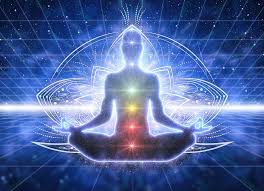
苦を除き、幸せを求める、ブッダの教えの基本中の基本、「聖なる八つの道」は、
ここから始まる――解説を、バイリンガルで、どうぞ。
Here is where the “Noble Eightfold Path” begins; the most basic of basics in the Buddha’s
teachings for eliminating suffering and seeking happiness――more to come both in
English and in Japanese.
◆Right Speech
Speech must be pure and wholesome. Purity is achieved by removing impurity, and so
we must understand what constitutes impure speech.
◆正しい言葉(正語)
言葉は純粋かつ健全でなければならない。純粋にするには不純なものを取り除けば
いい。そこで不純な言葉とはどんなものかを考えてみよう。
Such acts include: telling lies, that is speaking either more or less than the truth; carrying
tales that set friends at odds, backbiting and slander; speaking harsh words that disturb
others and have no beneficial effect; and idle gossip, meaningless chatter that wastes
one’s own time and the time of others. Abstaining from all such impure speech leaves
nothing but right speech.
不純な言葉というのは、つぎのようなものを指す。まず、嘘をつくこと、つまり真実を
矮小化したり誇張して話すこと。それから、友だちを仲たがいさせる告げ口。かげ口や
中傷。人の心を乱すだけでなんの意味もないとげとげしい言葉。自分の時間も相手の
時間もむだにするうわさ話、無意味なおしゃべり。これらの不純な言葉を除いたもの
が、正しい言葉になる。
◆Right Action
Action must also be pure. As with speech, we must understand what constitutes impure
action so that we may abstain from it.
◆正しい行為(正業)
行為もまた純粋でなければならない。言葉の場合と同様、どんな行為が不純になるかを
考えてみよう。
Such acts include: killing a living creature; stealing; sexual misconduct, for example, rape
or adultery; and intoxication, losing one’s senses so that one does not know what one
says or does. Avoiding these four impure actions leaves nothing but right action, wholesome action.
不純な行為というのは、つぎのようなものを指す。生き物を殺すこと。盗むこと。強姦
や不貞などの性的なあやまちを犯すこと。泥酔して理性を失い、自分がなにを言い、
なにをしているのかわからなくなること。これら四つの不純な行為をつつしめば、
あとは正しい行為、よい行為だけが残る。
Q&A
Isn’t performing right action a kind of attachment?
No. It is simply doing your best, understanding that the results are beyond your control.
You do your job and leave the results to nature, to Dhamma: “Thy will be done.”
Q&A
――正しい行為を心がけること、それも一種の執着になりませんか?
それは違います。ただ最善を尽くし、その結果は甘んじて受ける。すべきことをなし、
結果は自然に、ダンマに任せるのです。「み心のままに」ということです。
Then it is being willing to make a mistake?
If you make a mistake you accept it, and try not to repeat it the next time. Again you may
fail; again you smile and try a different way. If you can smile in the face of failure, you are
not attached. But if failure depresses you and success makes you elated, you are certainly
attached.
――失敗を恐れるなということですか?
失敗したらその事実を受け入れ、次に同じ間違いをくりかえさないよう気をつけるの
です。それでもまた失敗するかもしれない。そうしたら、にっこり笑ってまた別の方法
でやってみる。失敗しても笑顔でいられるなら、だいじょうぶ。執着はありません。
失敗したら落ち込み、成功したら大喜び、そういう時は執着してしまっています。
Then right action is only the effort you make, not the result?
Not the result. That will automatically be good if your action is good. Dhamma takes care
of that. We do not have the power to choose the result, but we can choose our actions.
Just do the best you can.
――正しい行動というのは努力する姿勢であって、結果ではないのですか?
結果ではありません。正しい行動をしていれば、おのずとよい結果が得られる
でしょう。ただ、結果はダンマが決めることです。わたしたちには結果を選ぶ力は
ありません。しかし、自分の意志で正しい行動を選ぶことはできる。ベストを尽くせば
よいのです。
Is it wrong action to harm another accidentally?
No. There must be an intention to harm a particular being, and one must succeed in
causing harm; only then is wrong action completed. Sǐla (moral practice) should not be
taken to an extreme, which would be neither practical nor beneficial. On the other hand,
it is equally dangerous to be so careless in your actions that you keep harming others,
and then excuse yourself on the grounds that you had no intention of causing harm.
Dhamma teaches us to be mindful.
――たまたま人を傷つけてしまった場合、それも悪い行いになるのでしょうか?
いいえ。傷つける意図をもって行動し、実際に傷つけたとき、悪い行いがなされたの
です。シーラ (道徳の訓練) をあまりにも極端に解釈することは現実的ではないし、良い
結果も生みません。ただ一方で、自分の行いに不注意で人を傷つけてばかりいて、
「わざとではないから」と言い訳することも過ちです。ダンマは私たちに注意深く
あることを教えます。
■プライバシー・ポリシー
当ブログは、Amazon.co.jpを宣伝しリンクすることによってサイトが紹介料を獲得
できる手段を提供することを目的に設定されたアフィリエイト宣伝プログラムである、
Amazonアソシエイト・プログラムの参加者です。このプログラムにおいて、
第三者がコンテンツおよび宣伝を提供し、ユーザーからの情報を収集し、訪問者の
ブラウザーにクッキーを設定することがあります。プログラムにおいて情報の
扱いについてはAmazon.co.jpプライバシー規約をご確認ください。
Amazon.co.jp ヘルプ: Amazon.co.jp プライバシー規約







